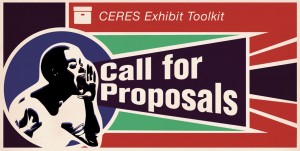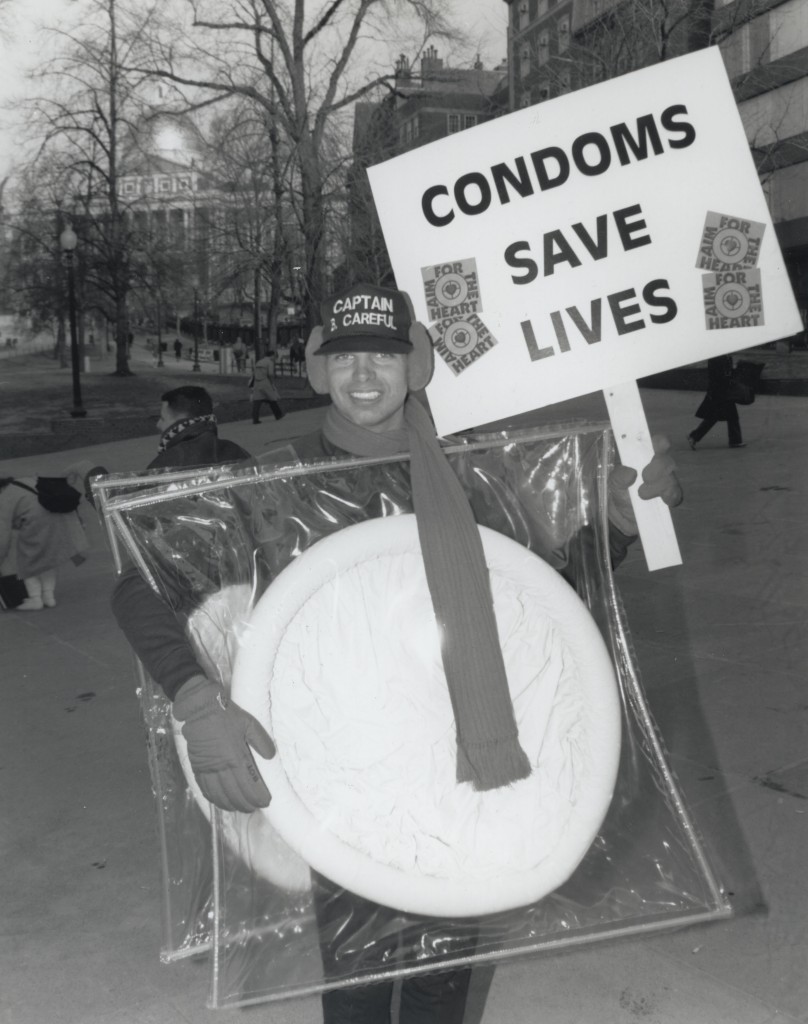In the wake of the events that occurred on April 15, 2013 at the 117th Boston Marathon and on April 19, 2013 in Watertown, Northeastern University English Professor Elizabeth Maddock Dillon and Assistant Professor Ryan Cordell recognized the obvious need for a space where people could tell and share their stories with each other. They believed that sharing stories from survivors, families, witnesses, visitors to the city, and everyone around the world touched by the event will speed the healing process, and wanted to create that space as a gift to the community.
Together, they established the
Our Marathon: The Boston Bombing Digital Archive, a crowd-sourced, digital archive of pictures, videos, stories, and social media related to the Boston Marathon bombing. Thus far, they have acquired an archive of almost 10,000 items, 3 interactive exhibits, and 3 major collections.

[April 21, 2013, from the Public Submissions collection]
This summer, I contributed to this remarkable endeavor as a Simmons School of Library and Information Science (SLIS) graduate summer intern sponsored by the
Northeastern University Archives and Special Collections Department and supported by the Project Co-Director James McGrath. In addition to exhibit building and social media, the main task of my internship was to create lesson plans for schoolroom use.
Because children were affected by this crisis as well, the team at Our Marathon thought it would help the healing process for children to use the Our Marathon archives—to remember and share stories in the safety of their own classrooms. Additionally, it can be difficult for teachers to navigate the complex questions young students ask and a resource like the digital archive can work as a great tool to facilitate age appropriate discussion.
To that end, I helped create a
Teaching Resources page for Our Marathon. This page showcases five lesson plans for Kindergarten through Grade 12 that utilize
Letters to the City of Boston and
The Copley Square Memorial collections, and the
WBUR Oral History Project as the basis for a teaching unit. These lesson plans are designed to demonstrate mastery of grade and subject appropriate Common Core Standards.
Hopefully, these assignments will generate more student submissions to the archive as well as create a platform for an important dialogue amongst students and teachers. I look forward to reading about their experiences in the Our Marathon archives.
 The Digital Scholarship Group is now accepting proposals for the next round of CERES Exhibit Toolkit development (formerly known as The DRS Project Toolkit). The CERES Exhibit Toolkit is a user-friendly set of tools for building digital projects and publications using digital materials from the Digital Repository Service (DRS) or the Digital Public Library of America. With CERES users can create exhibits, galleries, maps, timelines, and playlists that draw digital materials dynamically from the DRS or the DPLA.
We are also excited to announce a new program of support for classroom use of the CERES Exhibit Toolkit. We invite proposals from faculty for courses to be held in Fall 2017 and Spring 2018.
Feature development CERES will be a collaborative endeavor and a great opportunity to experiment with publishing your project’s materials. If you have a project idea, we’d love to hear from you! Just answer a few questions about your project to apply.
Examples of successful projects from the first two years of the CERES project include:
The Digital Scholarship Group is now accepting proposals for the next round of CERES Exhibit Toolkit development (formerly known as The DRS Project Toolkit). The CERES Exhibit Toolkit is a user-friendly set of tools for building digital projects and publications using digital materials from the Digital Repository Service (DRS) or the Digital Public Library of America. With CERES users can create exhibits, galleries, maps, timelines, and playlists that draw digital materials dynamically from the DRS or the DPLA.
We are also excited to announce a new program of support for classroom use of the CERES Exhibit Toolkit. We invite proposals from faculty for courses to be held in Fall 2017 and Spring 2018.
Feature development CERES will be a collaborative endeavor and a great opportunity to experiment with publishing your project’s materials. If you have a project idea, we’d love to hear from you! Just answer a few questions about your project to apply.
Examples of successful projects from the first two years of the CERES project include:

 Are you:
…a scientist hoping to maximize the audience for your research?
…a student who’s tried to access a journal article through Google and hit a paywall?
…an early career researcher concerned about establishing your scholarly reputation?
…a taxpayer who wants to be able to access government-funded health research?
If so, then Open Access is relevant to you!
This week, Snell Library is celebrating International Open Access Week, which highlights the importance of expanding access to research on a global scale. Open Access Week is an international event now in its eighth year – its purpose is to raise awareness about inequities in access to information and promote change in the publishing industry.
Traditionally, researchers access information they need through a personal subscription, buying a book, or accessing information through a library. But what if your library doesn’t have a subscription? Or, what happens when you graduate? Or, what about researchers in developing countries where the costs of access are out of reach? (Journal subscriptions can cost thousands of dollars.) These are some of the reasons why opening access to research is important.
The theme of International Open Access Week this year is “Generation Open” – highlighting the importance of students and early career researchers as advocates for change. Snell Library has several events planned to celebrate OA Week; given the theme this year, I’m very pleased that for the first time, one of our events features a Northeastern student’s work! And be sure to stop by our table in the lobby of Snell every day this week (11:30-1:30) to learn more and pick up a totebag, laser-cut bookmark, or pen!
Schedule of Events
Monday, October 20
3:00 pm-4:30 pm
90 SL
Are you:
…a scientist hoping to maximize the audience for your research?
…a student who’s tried to access a journal article through Google and hit a paywall?
…an early career researcher concerned about establishing your scholarly reputation?
…a taxpayer who wants to be able to access government-funded health research?
If so, then Open Access is relevant to you!
This week, Snell Library is celebrating International Open Access Week, which highlights the importance of expanding access to research on a global scale. Open Access Week is an international event now in its eighth year – its purpose is to raise awareness about inequities in access to information and promote change in the publishing industry.
Traditionally, researchers access information they need through a personal subscription, buying a book, or accessing information through a library. But what if your library doesn’t have a subscription? Or, what happens when you graduate? Or, what about researchers in developing countries where the costs of access are out of reach? (Journal subscriptions can cost thousands of dollars.) These are some of the reasons why opening access to research is important.
The theme of International Open Access Week this year is “Generation Open” – highlighting the importance of students and early career researchers as advocates for change. Snell Library has several events planned to celebrate OA Week; given the theme this year, I’m very pleased that for the first time, one of our events features a Northeastern student’s work! And be sure to stop by our table in the lobby of Snell every day this week (11:30-1:30) to learn more and pick up a totebag, laser-cut bookmark, or pen!
Schedule of Events
Monday, October 20
3:00 pm-4:30 pm
90 SL